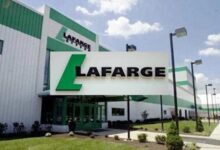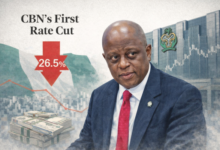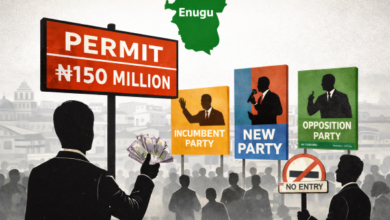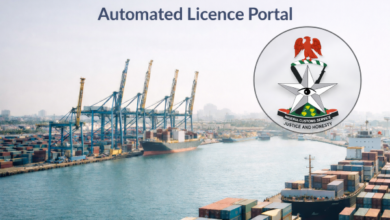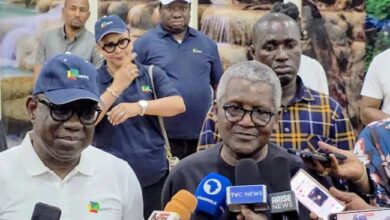Nigeria’s FTZ can drive country’s industrialisation -Tinubu’s aide
 Nigeria’s Free Trade Zones (FTZ) have the potential to drive the country’s industrial aspirations, Special Adviser to the President on Industry, Trade and Investment, Mr John Uwajumogu has said.
Nigeria’s Free Trade Zones (FTZ) have the potential to drive the country’s industrial aspirations, Special Adviser to the President on Industry, Trade and Investment, Mr John Uwajumogu has said.
Uwajumogu made this known at a Stakeholders’ meeting to proffer solutions to challenges confronting the smooth operations of the sub-sector.
BRANDPOWER reports that the meeting was organised by Nigeria Economic Zones Association in collaboration with Nigeria Export Processing Zones Authority (NEPZA) and Oil and Gas Free Zones Authority (OGFZA).
”The smooth operations of the scheme will accelerate the growth of the country’s economy.
”Also, initiating the right policies and proper implementation of the existing laws are critical in addressing the challenges affecting the free trade zones,” he said.
Uwajumogu further emphasised the importance of the Special Economic zones (SEZs) in driving the Federal Government’s development agenda.
“SEZs provide those tangible expressions that will provide the needed policy to drive the industrial, trade and investments aspirations,’’ he said.
The aide also said that there was a need to promote local production capacity critical in enhancing export and attracting more investments.
Also speaking, Sen. Tijani Kaura, Managing Director, Oil and Gas Free Zones Authority (OGFZA) described the roundtable as apt, saying that smooth operations of the SEZs was crucial in propelling Nigeria’s economy.
Presenting an overview of Free Trade Zones in Nigeria, the Managing Director, Lagos Free Trade Zone, Mr Dinesh Rathi highlighted the status, impacts, and challenges for improved operations of the free trade zones.
Rathi said that free trade zones had major roles to play in repositioning Nigeria as an economic hub.
He emphasised the need to review the NEPZA and OGFTZA acts with a view to meeting emerging trends.
In his contribution, Prof. Adesoji Adesugba, the Managing Director, Nigeria Export Processing Zones Authority (NEPZA) said there was a need to address aspects of the challenges impeding the growth of the free trade zones scheme.
He identified them to include incoherent policies, improper implementation of existing laws, and overlapping mandates as well as physical challenges such as roads and access to location.
Adesugba assured investors of adequate security of their investments and the Federal Government’s determination to ensure that operators do business with ease.
”We have an agreement in place to provide the free trade zones so investors should come because if we don’t live up to that agreement investors will not come.
“And in today’s age we need to make Nigeria competitive as a matter of urgency; we need to accelerate development and this scheme can do it,’’ Adesugba said.
Chief Nabil Saleh, Chairman Nigeria Economic Zones Association, said that the importance of the meeting could not be overstated.
He described the roundtable as a platform to address challenges confronting the smooth operations of the free trade zones in Nigeria.
Saleh called for concerted efforts to provide viable solutions to challenges encountered by Nigeria’s economic free trade zones.
According to him, free trade zones hold immense potential for trade and economic development.
“They have the power to spur industrialisation, job creation and technological advancement,’’ Saleh said.


